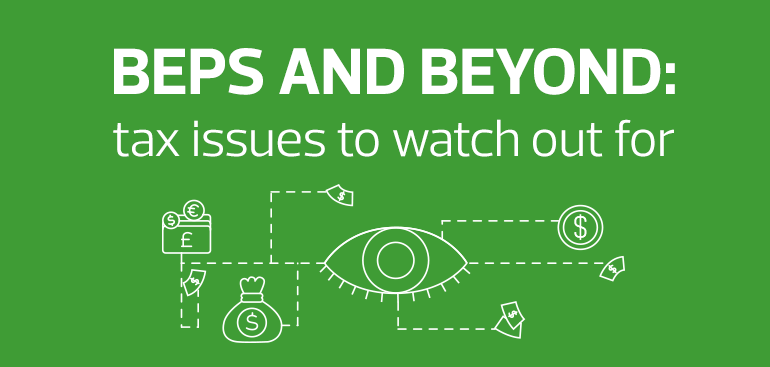
When it comes to tax affairs, the biggest fear among clients is of committing an offence by accident. This could include failure to duly lodge tax returns, inadvertent over claiming of deductions or under stating of income, or failure to comply with complex and detailed employment taxes. This is not to say that middle market businesses are intentionally breaking the rules, but it’s hard to keep up to speed with the rules when they change so frequently. This is especially challenging when a business is operating across borders and needs to remain compliant with the tax laws of several countries.
When discrepancies or uncertainties aren’t resolved, or unscheduled tax liabilities accumulate, businesses could find they have broken serious rules in countries where they do very little business and have very little knowledge. This is not only bad for businesses but bad for tax authorities that are seeking to create a fair and balanced tax system. So how can businesses stay ahead of ever shifting tax laws and rules?
Outlined below are a number of key tax areas to watch out for:
BEPS
In Europe, there is at least a degree of uniformity because the EU 28 have agreed a largely co-ordinated approach to implementing the OECD’s Baseline Erosion Profit Shifting (BEPS) programme. In other regions like the Americas and Asia Pacific, tax authorities range from either full engagement with BEPS to complete non-engagement, so navigating their varying rules becomes even trickier. Given these uncertainties it should be a priority for middle market businesses to begin reviewing their own structures to ensure compliance with not only domestic rules but the rules of those other countries where they do business. Our International Tax Map is one way you can keep on top of the priorities in your own country, region and globally.
Whilst BEPS may seem like a big corporate tax issue on the surface, in truth, it is a much more complicated challenge for middle market companies. It is worth remembering that many businesses don’t have access to an army of in-house tax experts, so preparing early is a good way to find out what external resources might be needed further down the line. Finally, businesses will benefit enormously if they put in place governance structures that can monitor their evolving operations as they move towards being BEPS compliant.
In Europe at least, there are a number of BEPS related changes that can be easily identified across many countries. These are:
- Transfer pricing: Several countries in the EU, including France, have indicated that they will tighten transfer pricing rules and require more transfer pricing documentation to be prepared in accordance with BEPS.
- Substance requirements: Double taxation treaties have proven ineffective and the new multilateral instrument seeks to modernise the effectiveness of tax treaties, by for example changing rules to prevent companies claiming profits in jurisdictions where they don’t have a physical presence in terms of office space, employees or other assets.
- Hybrid mismatching: Europe has moved to curtail advantages for those companies able to use hybrid tax structures that allow them to reduce their tax. Switzerland, Germany and the UK have been particularly active in this area.
- Information exchange: Europe has been a strong supporter of increased disclosure and real time sharing of cross border information between Revenue Authorities, so business needs to plan and operate on the basis that full disclosure is becoming the norm.
Helpfully, the OECD is also putting in place a peer review process to determine whether countries have adequately implemented part of the BEPS recommendations. This should, in theory, mean that there is more uniformity in the future.
USA tax reform stalls
In the United States, we’ve seen uncertainty loom larger as Republican Senators voted to delay the introduction of corporate tax cuts and curb the generosity of some other tax reductions. The delay means that the rules won’t become apparent until later in 2018, so many businesses will need to adopt a wait and see approach. According to the Senate plan, it would impose a tax of at least 10% on income from intangible assets like intellectual property, though it would be levied differently depending on whether a company is US based or a subsidiary based abroad.
The immediate impact of this uncertainty has led to some jittery market behaviour as the markets expect the value of the dollar to slide. It’s harder to predict what the impact will be on middle market businesses, but it’s likely to have a significant impact as the broader US and American economies experience unease.
Paradise Papers
In the UK and internationally, the Paradise Papers have started an international conversation about what is illegal, what is immoral but legal and what is both moral and legal. The BBC programme, Panorama, has led research as part of a global investigation involving nearly 100 other media organisations across 67 countries. It means that tax is going to remain firmly on the international news agenda for the foreseeable future. At the moment, the focus is on individual millionaires and other high-profile companies, but it is likely that companies with overseas offices are going to come under more scrutiny as countries seek to bring profits back to their shores.
In this context, globally active middle market companies should start to establish a statement of tax policy that will provide a message to regulators, and its employees and customers. Generally, at this stage, this is only mandated, in certain countries, for larger public companies but the pressure on companies to be seen to be paying a “fair share” of tax is likely to push this further and pre-planning makes good business sense in such a complex area.







